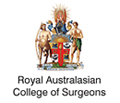Six Point Yearly Eye Checkup

Regardless of your age and physical health, having regular eye checks with an eye doctor is one of the most important things you can do for your health. In most cases, eye diseases do not reveal symptoms in the early stages. Early detection and treatment of eye diseases can help reduce your risk of permanent and irreversible vision loss.
personalEYES’ comprehensive six point specialist eye checkup comprises of the following:
- Vision Check
Are you wearing the right strength glasses? Are you having reading problems? Are you suitable for laser vision correction or LASIK? - Corneal Check
Is your cornea healthy? Do you have dry eyes? Contact lens wearers should be very wary of corneal infections as these are caused by improper use and care of contact lenses. - Glaucoma Check
Also known as eye pressure check, glaucoma is ranked as one of the leading causes of vision impairment in the world. It happens when the pressure in the eye becomes too high and damages the optic nerves leading to vision loss. Most people have no initial symptoms of chronic glaucoma, but you can develop peripheral vision loss, headaches, blurred vision, difficulty adapting to darkness and halos around lights. The best way to prevent is through early diagnosis and treatment. - Cataract Check
Cataract is ranked the leading cause of blindness in the world. A cataract occurs when the lens becomes frosty or cloudy, usually caused by aging. If left untreated, the person will eventually become blind. Early detection with modern cataract surgery and multifocal lens will restore your vision. - Retina Check
Like glaucoma, retinal diseases such as diabetic retinopathy, age-related macular degeneration (AMD), and retinal hole can be treated if diagnosed early. These types of eye diseases usually come with age. Diabetes can cause small blood vessel leaks or bleeding in the eye, as well as swelling of the macula, which can lead to vision loss. It is estimated that one-third of the population who have diabetes are not aware of it. - Optic Nerve Check
The optic nerve is the part of the eye that carries stimuli from the rods and cones to the brain. Problems such as inflammation (Optic Neuritis), tumors and swelling can lead to symptoms such as blurred vision, loss of color vision, floaters, headache, eye pain or discomfort, nausea and vision loss.










